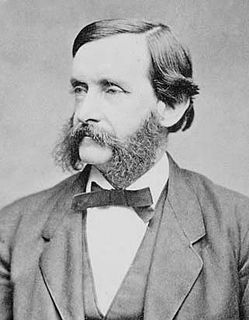A Quote by Francois de La Rochefoucauld
The most ingenious men continually pretend to condemn tricking--but this is often done that they may use it more conveniently themselves, when some great occasion or interest offers itself to them.
Related Quotes
Men create their own gods and thus have some slight understanding that they are self-fabricated. Women are much more susceptible, because they are completely oppressed by men; they take men at their word and believe in the gods that men have made up. The situation of women, their culture, makes them kneel more often before the gods that have been created by men than men themselves do, who know what they've done. To this extent, women will be more fanatical, whether it is for fascism or for totalitarianism.
One reason why men and women lose their heads so often is that they use them so little! It is the same with everything. If we have anything that is valuable, it must be put to some sort of use. If a man's muscles are neglected, he soon has none, or rather none worth mentioning. The more the mind is used the more flexible it becomes, and the more it takes upon itself new interests.
Women believe -- or at least often pretend to believe -- that all our tenderness for them springs from desire; that we love them when we have not for a time enjoyed them, and dismiss them when we are sated, or to express it more precisely, exhausted. There is no truth in this idea, though it may be made to appear true. When we are rigid with desire, we are apt to pretend a great tenderness in the hope of satisfying that desire; but at no other time are we in fact so liable to treat women brutally, and so unlikely to feel any deep emotion but one.
I think the Iraqis themselves will have to make a determination as to what type of government they ultimately come up with and what kind of nation they ultimately come up with. But they can continually use America's troops presence. The problem is not going to change until they are confronted with the reality that they have to make decisions and they have to make them themselves. They have to decide whether they want a country, whether they're willing to put their lives on the line and sacrifice for a national interest as opposed to a regional or sectarian interest.
In our methodical American life, we still recognize some magic in summer. Most persons at least resign themselves to being decently happy in June. They accept June. They compliment its weather. They complain of the earlier months as cold, and so spend them in the city; and they complain of the later months as hot, and so refrigerate themselves on some barren sea-coast. God offers us yearly a necklace of twelve pearls; most men choose the fairest, label it June, and cast the rest away.
I recommend allowing others the opportunity to fully express themselves before turning our attention to solutions or requests for relief. When we proceed too quickly to what people might be requesting, we may not convey our genuine interest in their feelings and needs; instead, they may get the impression that we're in a hurry to either be free of them or to fix their problem. Furthermore, an initial message is often like the tip of an iceberg; it may be followed by yet unexpressed, but related - and often more powerful - feelings.
The most part of men, though they have the use of reasoning a little way, as in numbering to some degree; yet it serves them to little use in common life; in which they govern themselves, some better, some worse, according to their differences of experience, quickness of memory, and inclinations to several ends; but specially according to good or evil fortune, and the errors of one another.
Some false representations contravene the law; some do not. The law does not pretend to punish everything that is dishonest. That would seriously interfere with business, and, besides, could not be done. The line between honesty and dishonesty is a narrow, shifting one and usually lets those get by that are the most subtle and already have more than they can use.
There is a spiritual capacity in carbon as there is a carbon component functioning in our highest spiritual experience. If some scientists consider that all this is merely a material process, then what they call matter, I call mind, soul, spirit, or consciousness. Possibly it is a question of terminology, since scientists too on occasion use terms that express awe and mystery. Most often, perhaps, they use the expression that some of the natural forms they encounter seem to be "telling them something."
...it happens that society is saved as often as the circle of its ruling class is narrowed, as often as a more exclusive interest asserts itself over the general. Every demand for the most simple bourgeois financial reform, for the most ordinary liberalism, for the most commonplace republicanism, for the flattest democracy is forthwith punished as an assault upon society and is branded as Socialism.




































